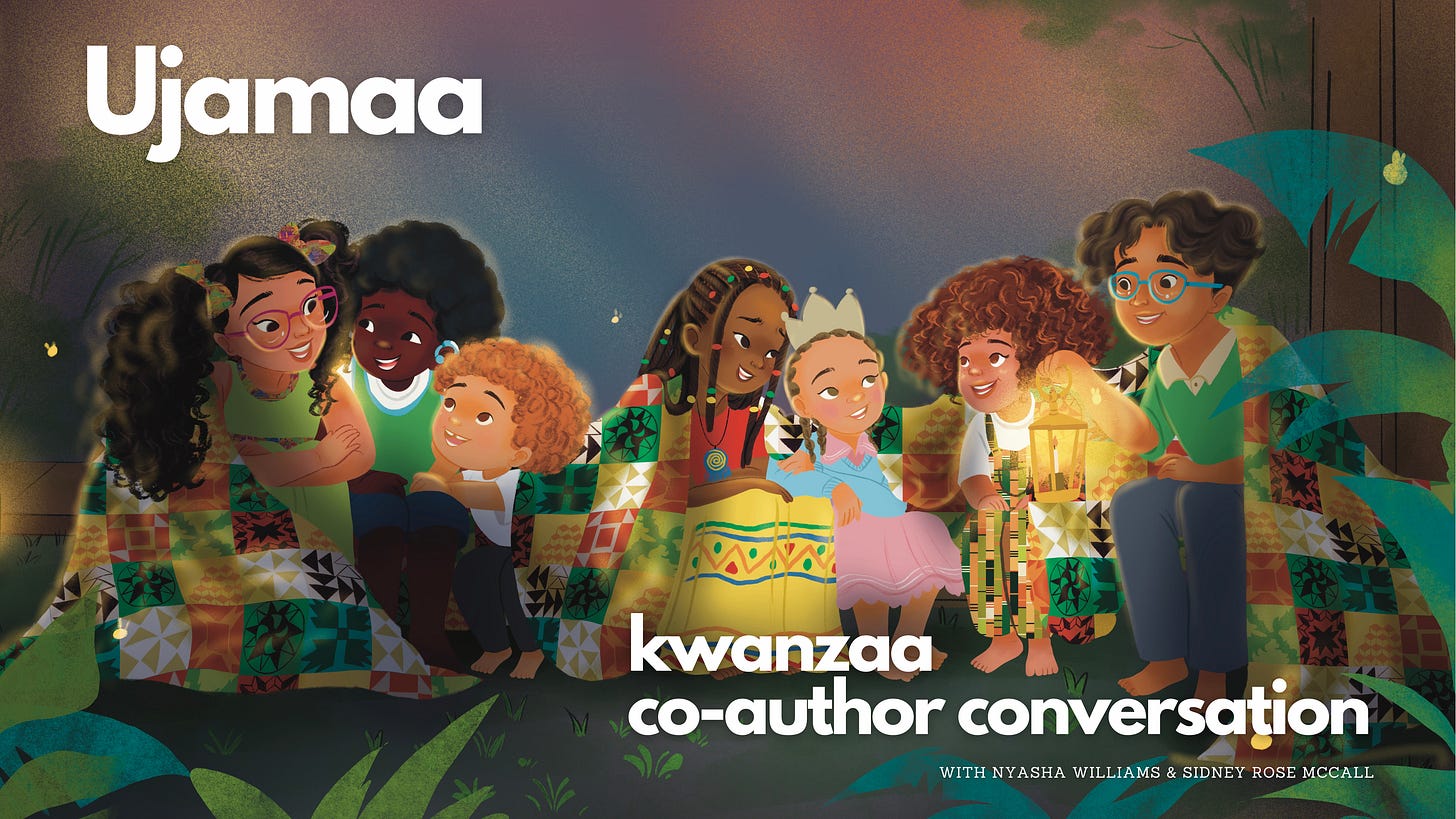Beloveds,
Welcome back to our communal fire, where we gather in rhythm with the principles of Kwanzaa and let them guide us toward the world we’re co-creating…boldly, tenderly, and with great intention.
This month, Sidney and I turn our collective attention to Ujamaa, the fourth principle of Kwanzaa, which means Cooperative Economics. Rooted in practices far older than capitalism, Ujamaa calls us to remember that abundance expands when it is shared, and that wealth isn't just money, it’s time, energy, food, medicine, and love redistributed for the good of all.
Together in conversation, we reflect on:
What Ujamaa looked like in our childhoods
The importance of mutual aid, not just charity.
Why covering our people is sacred labor.
The harms of capitalist exploitation and what it means to vote with our energy, not just our dollar.
Ancestors like Toni Morrison and Madam C.J. Walker, who practiced Ujamaa through the arts and enterprise, even amid complexity.
Recipes and memories, gumbo, chili, fish and bread, all food that demands to be shared.
How Can We Incorporate the Principles of Kwanzaa and Ujamaa Into Daily Life?
Drawn directly from our conversation, here are ways that you can embody Ujamaa every day:
1. Support and Redistribute Resources in Your Community
Buy from local businesses, farmers, and community-rooted initiatives rather than exploitative corporations.
Share resources, food, and knowledge- especially with those outside your close circle.
Organize or contribute to food drives, community fridges, or gardens.
2. Practice Mutual Aid and Cooperative Economics
Pool resources with others to support those facing hardship.
Engage in bartering, skill-sharing, and other non-capitalist exchanges.
Invite those with more to give more, especially financially.
3. Expand Your Definition of Community
See both your neighbors, strangers, and the land, animals, and waters as kin.
Find ways to cover strangers and transform them into relatives through care and connection.
4. Practice Accountability and Critical Reflection
Honor your ancestors and community leaders in full celebrating the good, while acknowledging harm.
Reflect on how you spend your money, energy, and time. Are your investments aligned with justice and care?
5. Engage in Communal and Self-Care
Self-care fuels communal care. Tend to your body and spirit so you can tend to others.
Invite others into your healing and let them support you, too.
6. Build a Longer Table
When you have more than enough, widen the circle. Share. Invite in. Feed others.
Break down fences and build bridges rooted in love, care, and reciprocity.
“When you have more than you need, build a longer table not a higher fence.”
African Prover
CALL TO ACTION:
Reflect: Who are the strangers you could begin treating as relatives?
Redistribute: What do you have to share: money, time, food, ideas, joy?
Resist: Divest from harm. Invest in care.
Tune In: Let the playlist guide you.
Closing Blessing:
May we remember: we are not meant to go it alone. We are meant to gather. To build. To bless. Kwanzaa is more than a celebration it is a reclamation of possibility.
















Share this post